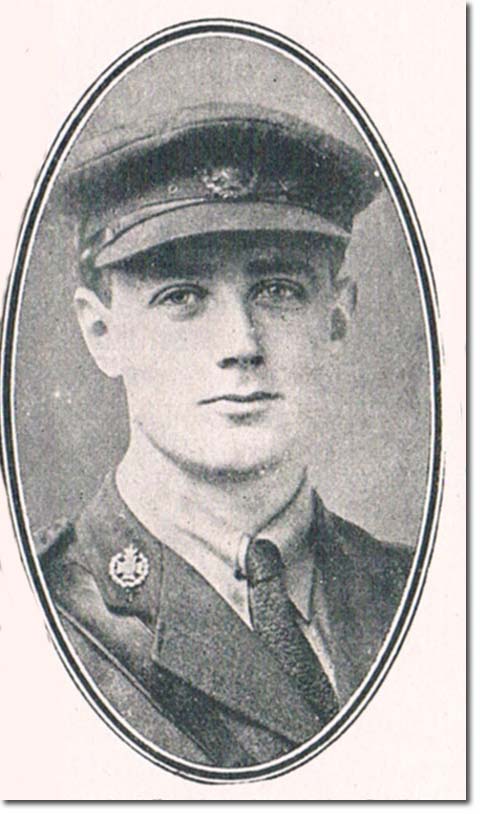|
|

 |
|
On 14 Oct 1915, at the Hohenzollern Redoubt, Captain Vickers defended a barrier for several hours against heavy German grenade attacks. Nearly all his men had been killed or wounded so he only had two men available to hand him grenades. While he was holding this position he ordered another barrier to be built behind him regardless of the fact that his own retreat would be cut off. He was severely wounded in this action but he had bought enough time for the second barrier to be completed.
Charles Geoffrey Vickers was born on 13 Oct 1894 in Nottingham, the son of Charles Henry Vickers who ran a lace business. He was educated at Oundle and Merton College, Oxford. In WW1 he joined the 7th Robin Hood Battalion of the Sherwood Foresters. By the end of the war he was second in command of 1st Bn Lincolnshires at the battle of the Marne. He had a brother, William, an artillery officer, who was killed in 1917. After the war he returned to Oxford and studied French History and Law. In 1930 he flew to India in the first 5-day commercial flight. He was involved in the negotiations to extend the German debt. In WW2 he was re-commissioned as a colonel and seconded to the Ministry of Economic Warfare, in charge of economic intelligence. He was then a member of the Joint Intelligence Committee of the Chiefs of Staff. He was also on the London Transport Board and the Law Society. After the war he was knighted (1946) and specialised in systems analysis and the patterns of social organisation. He lectured and wrote books. He was on the National Coal Board as legal advisor and the Medical Research Council, chairing the research committee for mental health. He lived for many years at Goring-on-Thames, Oxfordshire and died on 16 Mar 1982. The International Society for the Systems Sciences presents the Sir Geoffrey Vickers Memorial Award every year in his memory. |
Armed Forces | Art and Culture | Articles | Biographies | Colonies | Discussion | Glossary | Home | Library | Links | Map Room | Sources and Media | Science and Technology | Search | Student Zone | Timelines | TV & Film | Wargames